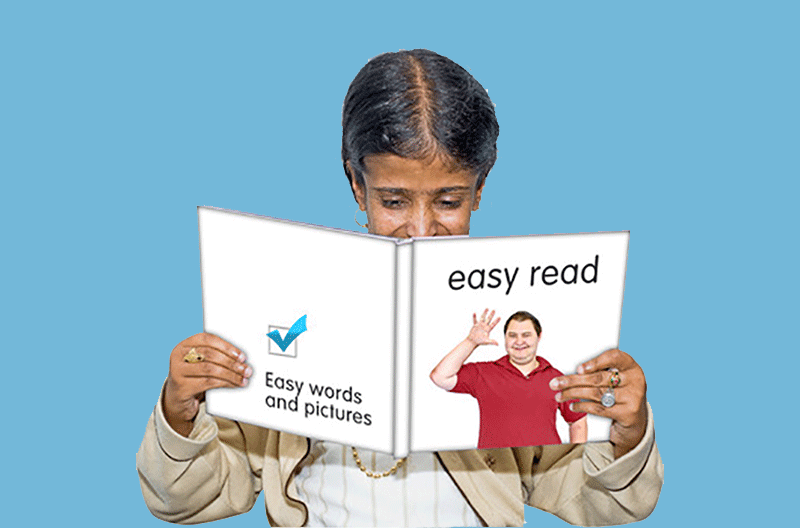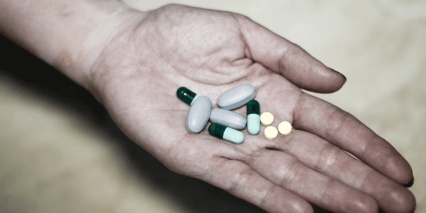For carers: Preventing constipation
As a support worker or carer you need to consider how to provide the best and most appropriate support to prevent constipation.
Dimensions encourages our support colleagues to use our ‘Constipation and Bowel Health Management Plan’ and guidance to monitor and improve gut and bowel health for the people we support. Some of this information is available across the constipation webpages.
You might also consider a referral to a Dietician around dietary sources of fibre that prevent constipation.
Top tips to manage and prevent constipation risks
We go into more details below, but here are some quick tips to help you manage and prevent constipation risks:
- A balanced high fibre diet that comprises adequate fibre, fresh fruits, vegetables and grains; aim for at least 5 handful sized portions of fruit and vegetables a day.
- Increased hydration promotes softer faeces; aim for 6-8 cups of water per day.
- A regular time for opening the bowels and giving enough time in the toilet.
- Successful ‘training’ of the bowel relies upon regular routine. Facilitating a regular time for bowel movements helps in preventing the bowel from emptying sporadically.
- Consider the environment and potential causes of stress. The person should be as relaxed as possible when using the toilet.
- Regular exercise and activity.
- Abdominal Massage (a non-invasive massage therapy for the treatment of constipation) as part of a wider bowel management plan can improve bowel function. This can reduce the amount of medication required.
Continue reading for more information and advice on how to manage and prevent constipation risks.
Fibre and fluids
Fibre adds bulk to the stool and makes passing faeces easier because it passes through the intestine essentially unchanged.
Sufficient fluid is needed to keep faeces soft. The digestive system transports fluids; both constipation and diarrhoea can have a negative impact on fluid balance so require monitoring.
Encourage and support the person to have a high fibre diet – aim for at least 5 handful sized portions of fruit and vegetables each day.
As long as there is no medical advice to do otherwise, support and encourage the person to take 6 – 8 cup sized drinks per day. Maintaining the correct fluid level is essential in promoting and achieving good health!
Foe some people, maintaining fluid intake and hydration levels are a challenge. Alternatives to drinking liquids may include foods with high water content e.g. soups, jelly etc.
A person’s level of hydration should be assessed before any laxative medication is commenced. Laxatives can make dehydration worse.
Move more
Sedentary lifestyles, such as sitting all day, lack of exercise, prolonged bed rest and inactivity all contribute to constipation.
Aerobic exercise accelerates breathing and heart rate which helps to stimulate the natural contraction of intestinal muscles. Intestinal muscles that contract efficiently help move stools out quickly. Abdominal exercises strengthen muscles that facilitate bowel movements.
We need to acknowledge the impact and influence of a person’s posture and change of positions during each day. People with distorted body shapes and those without active independent movement are at risk.
Plan, promote, support and facilitate as much physical activity as possible on a daily basis.
A straight posture and gravity enable the digestive system to work more effectively. A wheelchair user for example, could benefit from opportunities in supported standing (allowing physical space for organs to work effectively) and gravity to work in favour of the digestive tract’s route etc.
Monitor medications
Constipation risk is likely to increase when people are taking 5 or more medications.
Many drugs can slow down peristalsis. Antipsychotics, anticonvulsants, antidepressants, anticholinergics, hypertension medications, hypnotics, iron and calcium supplements can all cause constipation.
Pain relief, including over the counter meds can cause or contribute towards constipation. Some muscle relaxants, by their nature can also impact and make the digestive processes less effective. Some medications for saliva control can have an influence on general hydration levels.
The person’s GP should review any medication that could be causing constipation.
The GP or medical professionals should always advise on any use of laxatives – as opposed to purchasing ‘over the counter’ remedies.
Pharmacists are also a good source of help and advice!
Prevent pain and piles
Haemorrhoids, anal fissures or other painful disorders can cause us to ignore the urge to open our bowels, which over time can result in a dilated rectum that no longer responds to the presence of a stool.
Warmth from a bath can relax muscles before using the toilet.
Haemorrhoid ointments shrink swollen and painful haemorrhoids. Always consult a Medical Professional before these are used.
Consider discussing with a Medical Professional if pain relief may be required prior to using the toilet. E.g. pain killers/local anaesthetic ointment/lubricant/muscle relaxants.
Make the loo safe and comfortable
Moving your bowels is a private thing. Some people may find it more difficult if they are anxious or stressed or embarrassed.
Other things that may cause distress at the toilet include the environment, experience or fear of abuse, other previous experiences, lack of independence, lack of understanding and embarrassment.
Tools such as the attached DisDAT can help to identify when a person is in distress.
Squatting is the best position to open the bowels – see the attached diagrams of the most effective squatting position on the toilet.
Some people may not be able to achieve this position.
Sometimes toilet aids can hamper this ideal posture – for example, those with mobility issues are frequently prescribed raised toilet seating – where the individual may not be as flexed (or muscles as relaxed) because their feet are not flat on the floor. Aids such as splash guards may dig into skin or trigger increased muscle tone or spasms.
Ensure privacy, preserve dignity, encourage independence, and reduce any levels of stress or embarrassment the person may be experiencing.
Consider any environmental aids and adaptions that can be made.
A familiar toilet is key for some people, preferring not to use public or unfamiliar amenities can contribute to problems.
We should be aware of the person’s preferences and usual toilet routine (or think about creating one) – for example, using the toilet after a warm bath or after they’ve eaten breakfast or having a hot drink as soon as they get up. Establishing a good routine and a regular opportunities to use the toilet is key for people who may not be able to indicate they need a bowel movement. It also means that once they’ve opened their bowels they can feel more comfortable and relaxed for the rest of the day.
Consider assessment from an Occupational Therapist or a Physiotherapist.
Keep it regular
Ignoring the urge to open the bowels eventually leads to chronic constipation because the rectum no longer detects or responds to the presence of the stool. The longer the stool stays in the rectum, the drier and harder it becomes. This makes the stool difficult to pass.
Most people open their bowels first thing in the morning or within 30 minutes of eating a meal or drinking coffee. This is the Gastrocolic Reflex.
Some people may not have the understanding in order to ‘push’ to initiate bowel movement – this can become exacerbated as constipation sets in.
Plan, encourage and support the person to have a regular time each day for opening their bowels.
Using the toilet at the same time each day is an effective way of supporting self-management, irrespective of learning disability.
Monitor independent pooers
Whilst an aim should always be for the person to be as independent and as ‘self-managing’ as possible, there is a risk that where a person uses the toilet independently, signs of constipation may go unnoticed. The person may feel uncomfortable or embarrassed about mentioning it, or they may not realise themselves.
A person may find it difficult to express their symptoms or feelings if they don’t have the language or the means.
A person’s independence in the toilet can lead to a ‘false sense of security’ in the support team about the person’s bowel health.
A thorough initial assessment of if the person is at risk of constipation will prompt referral to Medical Professionals and the development of a Bowel Management Plan that is appropriate for the persons individual circumstances. This risk can be addressed within the Bowel Management Plan.













